Christmas break is a perfect time to read. To contemplate and maybe, this is the occasion when one suddenly finds a book which will inspire to leave the settled life for an adventure or Expedition of a life time! And, about a year ago I had a question from Geographical to pick the 5 best Travel books I´ve ever come across. Well, just to inspire all of you, I have picked the 10 most inspiring books I have read so far in my life. And if they can´t inspire you, there´s not much I can do to make your life better…here they are:
1. Annapurna by Maurice Herzog. This is the way real climbs, real exploration should be done. Before you had set routes and ropes fixed to the mountain. This book presents the enthralling account, by the leader of the French expedition, of the first conquest of Annapurna – at that time, and at more than 8000 metres, the highest mountain ever climbed. It is a story of breathtaking courage and determination against appalling odds. In records of mountaineering, in tales of human endeavour, there is nothing so unforgettable as the account of the descent by the triumphant but frost-bitten men, after the monsoon had broken, through the flooded valleys of Nepal.
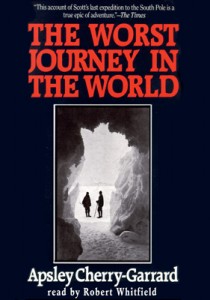
2. The worst journey in the world by Aspley Cherry-Garrard. This book gave me and Johan Ivarsson great insights into the cold during our Siberian Expedition. One of the youngest members of Scott’s team, Apsley Cherry-Garrard was later part of the rescue party that eventually found the frozen bodies of Scott and three men who had accompanied him on the final push to the Pole. This is his account of an expedition that had gone disastrously wrong. No episode in the history of human endeavour reads more harrowingly than Scott’s last expedition to Antarctica. Scott reached the South Pole in January 1911 to find Roald Amundsen had beaten him to it; then perished with his companions on the way home. ‘Yet, “tragedy”‘, Apsley Cherry-Garrard was to write a decade later, ‘was not our business.’ Cherry-Garrard was just 24, the youngest but one of the team when he joined Scott. Left behind for the final leg, in accordance with Scott’s original plan for a four-man advance, it fell to Cherry-Garrard eight months later to be a member of the search party which discovered their frozen bodies. The experience permanently damaged his mental health. For the rest of his life he was haunted by the fear that, but for what he perceived as an error of judgement on his part, they might have survived. Yet this book, his story of that and earlier expeditions, is in no way self-indulgent or sensationalist. Despite his name, aristocratic birth and classics degree from Oxford, Cherry-Garrard was no arrogant nobleman. Rather, this not especially robust but intelligent man well understood that polar exploration requires a singular fortitude pushing beyond brute strength to what Ranulph Fiennes was later to term mind over matter. Cherry-Garrard’s descriptions of the conditions suffered are rendered all the more diabolical by prose as stark as the landscape traversed. As for hyperbole, the ‘Worst Journey’ of the title in fact refers to an earlier expedition investigating nesting sites of the Emperor penguin. A work of supreme dimension, this masterpiece remains as compelling today as when it was first published 80 years ago.
3. The Heart of the Hunter by Laurens Van der Post. A beautiful book about travels among the Bushmen. In this stirring sequel to “The Lost World” of the Kalahari Laurens van der Post records everything he has learned of the life and lore of Africa’s first inhabitants. He explores the very sources of the Bushmen’s spirit and imagination – their dreams and stories, the legends that guide them and inspire them in their daily battles with that harshest of environments, the Kalahari.
4. Arctic dreams by Barry Lopez. An amazingly inspiring account from the northern part of the globe. The European picture of the Arctic is usually of snow and ice: the inhospitability of the terrain and the frigid wastes of the tundra contribute to our incapacity to imagine ordinary life there. In this magisterial book Barry Lopez draws on this hazy understanding of the far north to provide a compelling account of the land and its hold upon the psyche.It is a book which could be compared to Chatwin for its combination of travelogue and poetic vision. Yet the beauty of the prose and the thought-provoking evocations of modern culture’s shifting relationship with the environment are in a league of their own. Here are sparkling descriptions of the lives of caribou, muskoxen, polar bears and narwhals, and extraordinarily moving passages which meditate on the nature of our relationship with the world, the inter-dependence of ideas, desire and science and the possibility of dignity and compassion in the contemporary world.It is a measure of the respect which Lopez has for his subject that his book exemplifies the supreme importance which he ascribes to the ethics of respect in the face of all existential paradox:”There are simply no answers to some of the great pressing questions. You continue to live them out, making your life a worthy expression of a leaning into the light”.
5. Khyber Knights by CuChullaine O´Reilly. A very good friend of mine. It is an account of perilous adventure and forbidden romance in the depths of mystic Asia. A real modern day tale! It is also a book of insights to the human soul. It has everything an adventure book should have!
6. Scott and Amundsen by Roland Huntford. The best book about the race to the South Pole between Roald Amundsen and Robert Falcon Scott. It is not much liked by many British, but as somebody who is brought up in snow and cold, and know a bit about polar exploration, I think it is very accurate. Roald Amundsen should have been give much more acclaim for his fantastic life and discoveries. It is a very dramatic book,but gives a very good background on both of them.
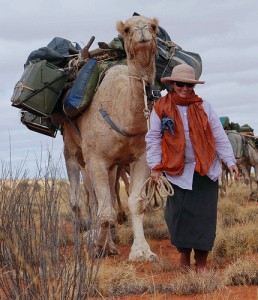
7. Tracks by Robyn Davidson. Even though most of my recommended books are about males, most likely because they are described and written in a way that appeals to me and my way to explore, I think that books about adventure and exploration written by women, generally are better as a whole. Women are more honest, lie and brag about themselves much less and are much more emotional. This book as excellent. In every way and should be read by everyone who is thinking about doing adventures and Expeditions. It is a bout her 1700 mile trek with camels across the Western desert of Australia.
8. The voyage of the Beagle by Charles Darwin. I had no idea that Charles Darwin was such a good writer. The book is a must in many ways, since quite a few of his ideas regarding the evolution of mankind began developing here, but it is also a great travel book full of adventures and insights into all these countries that the Beagle passed on its 5 years journey.
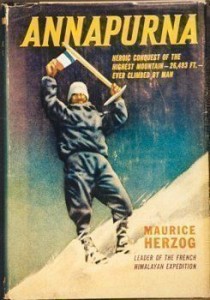
9. The incredible voyage by Tristan Jones. Amazing book by an amazing fella. His passage with his boat through South-America is just unbelievable. He is a very good writer and this will be a classic in the future. With a singleness of purpose as ferocious as any hazard he encountered, Tristan Jones would not give up – even after dodging snipers on the Red Sea, capsizing off the Cape of Good Hope, starving on the Amazon, struggling for 3,000 miles against the mightiest sea current in the world, and hauling his boat over the rugged Andes three miles above sea level to find at last the legendary Island of the Sun. And beyond lay the most awesome challenge of all – the tortuous trek through 6,000 miles of uncharted rivers to find his way back to the ocean.
10 Arabian Sands by Wilfried Thesiger. By now, I have read the book many times. It is part poetry, part the meaning of life, but most a great read about his amazing explorations in the Arabian desert, and most of all, in Rub Al-Khali. Thesiger himself sums it up himself, by saying in his foreword:
No man can live this life and emerge unchanged. He will carry, however faint, the imprint of the desert, the brand which marks the nomad; and he will have within him the yearning to return, weak or insistent according to his nature. For this cruel land can cast a spell which no temperate clime can hope to match.

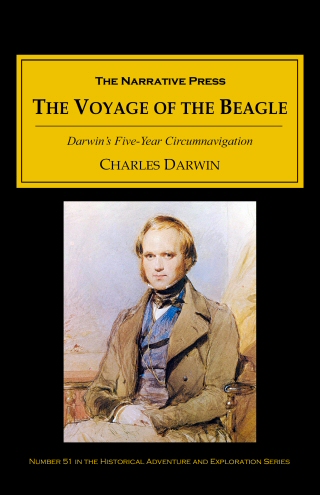
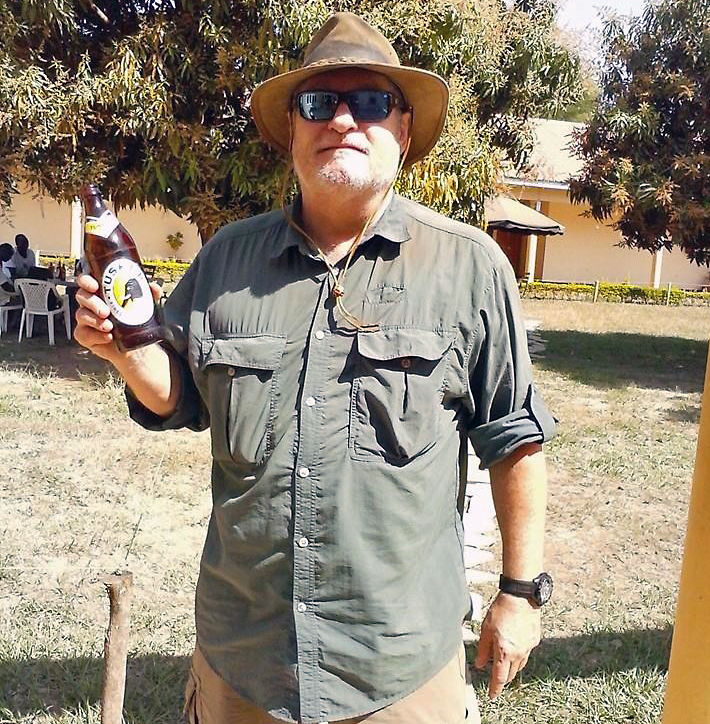
Thanks for this wonderful list. I am a fan of adventure travel books. I read Tracks to my son when he was little. When I went to Antarctica I read whatever I could get my hands on. The Worst Journey is one of my brother’s favorites. I’ve only read parts of it. I’m looking forward to perusing the list you’ve given in this blog. What about Eric Hansen Stranger in the Forest: On Foot Through Borneo, or Redmond O’Hanlon In Trouble Again? I began but did not complete Road to Oxiana since it was described as the first travel adventure book.
Dear Chris! Thank you very much for your comments! I haven´t read the books you recommend, but I will. Robert Byron’s classic is a good read, but doesn´t make the ten best in my book. However, I am re-reading a book written by Mohammed Asad called The Road To Mecca, which is very inspiring and not only a spiritual essay, but also a great travel and adventure read. I think you would enjoy it a lot, since Pamela has showered your name with great words! I have understood that we are honored to meet you on Friday. I genuinely look forward to that! Mikael
Across The Gobi by Helen Thayer is my addition to this superb list.
Numbers 7 and 10 are top trumps!!!
Moi Mikael.
Göran Kropp´s “Ultimate High: My Everest odyssey” is worth mentioning! Jukka
good work on the books and well done on the words
I am only a hiker but I like to read about other people’s adventures and explorations. I have read a couple of the books on your recommended list and will add the others to my Books I Want To Read list.
Your comments about the woman writer mirror my hiking partners comments almost exactly!
Thanks as always for all your writings and sharing!
I know I am just a biased Brit but can I just say one thing that really annoys me about the debate about Scott and Amundsen – IT WAS NOT A RACE! This is what people really must bear in mind about it. Scott had no idea Amundsen was giving up his expedition to the North Pole to try to take the South. Scott’s trip was as much about scientific exploration as it was about reaching the South Pole first. It was very cheeky (to say the least) of Amundsen to do what he did and his expedition was all about getting to the pole quickly and not about carrying 100s of kilos of rocks for scientific purposes… I think Huntford has done a great disservice to the memory of the Terra Nova expedition by pitting Scott against Amundsen as if it were a race and a clash of characters when it clearly wasn’t.
Hi Lizzie, Thanks for your opinion, much appreciated. Just for those of you who might not know what Lizzie is referring to, see this interview with Huntford, http://www.theguardian.com/world/2010/sep/27/captain-scott-antarctic-amundsen-south-pole and don´t miss the comments!